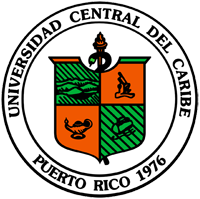Certificate in Substance Abuse Counselor
Course Code |
Course Tittle |
Credits |
SAC 504 |
Human Development |
3 |
SAC 503A |
Neuropsychopharmacological Aspects of Substance Abuse |
3 |
SAC 511 |
Theory and Practice of Individual Counseling |
4 |
SAC 501A |
Theotherical Models of Addictions and its implications for Counseling |
3 |
SAC 516 |
Theory and Practice of Family Counseling |
3 |
SAC 514 |
Theory and Practice of Group Counseling |
3 |
SAC 517 |
Ethical and Legal Aspects of Substance Abuse Counseling |
2 |
SAC 530 |
Internship I: Substance Abuse Counseling |
4 |
Intership
INTERSHIP I: Substance Abuse Counseling emphasizes the acquisition of substance abuse counseling skills and the integration of these skills into a variety of substance abuse prevention and treatment settings. A rich combination of at-risk populations, substance abuse treatment scenarios and substance abuse counseling supervisors will ensure that students acquire basic competencies in each core counselor function. An attempt will be made to individualize the internship to meet each trainee’s specific needs. The internship is divided into different rotations and a seminar. On each rotation the student works closely with the staff substance abuse counselor who provides supervision and guidance. The student becomes a member of the interdisciplinary team and provides counseling services to clients (individuals, family and groups), consultation to other professionals, attends interdisciplinary meetings and presents clients’ progress in staff conferences.
In consultation with the Internship Coordinator, the student will select internship sites from the available private and public treatment settings with which agreements have been reached. In addition to the rotations, the student is expected to participate in a two hour seminar every other week. This didactic aspect of the internship is intended to offer academic training in areas that directly relate to the student’s present and future career as a wellrounded substance abuse counselor. The didactics include case presentations, lectures and conferences. Topics covered in this seminar include substance abuse counseling strategies (individuals, family and group), research in neuropsychopharmacology and clinical aspects of substance abuse, and professional and ethical responsibilities of the substance abuse counselor.
